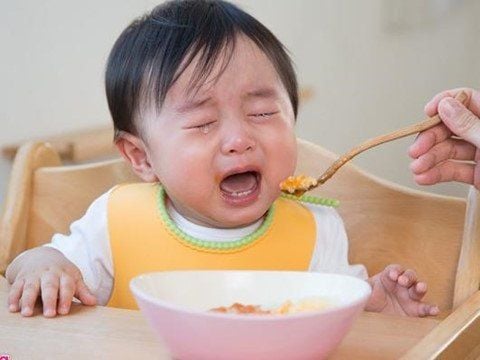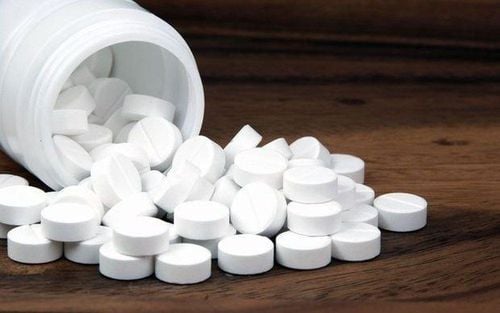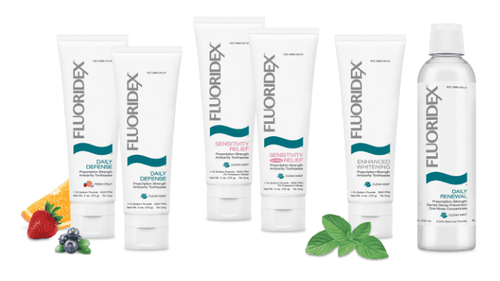This is an automatically translated article.
The article is professionally consulted by Master, Doctor Phan Ngoc Hai - Pediatrician - Neonatologist - Department of Pediatrics - Neonatal - Vinmec Danang International General Hospital.Night feeding is the leading cause of tooth decay in young children. Tooth decay in young children leads to many unpredictable consequences, so it is necessary to have effective measures to prevent tooth decay in children who are often breastfed at night.
1. Why does night-feeding babies have tooth decay?
Children have a habit of sucking breast milk at night or sleeping with a bottle, which makes milk stick to their teeth for a long time, creating an acidic environment that easily destroys tooth enamel, which is favorable for bacteria in the oral cavity to penetrate and destroy teeth. baby's. In addition, during sleep, only a small amount of saliva is secreted, so sugary liquids from milk will stay on the teeth more than during the day. After so many nights, children's teeth are very susceptible to decay. Babies who are bottle fed at night with formula at night have a higher risk of tooth decay than breastfed babies. Because formula milk is high in sugar and fruit contains a lot of sugar. The more sugary foods contain, the easier it is to convert into lactic acid, which can damage the enamel of children's teeth. Young mothers do not know how to clean their children's teeth. Mother always thought that milk teeth would later change into permanent teeth, so she didn't pay much attention to dental hygiene, along with many bad habits, not taking children to the dentist, which resulted in many dental caries, especially milk incisors in the upper and lower jaws. See also: Tooth decay in children: Causes, early signs of recognition2. Consequences of tooth decay in children

Trẻ sâu răng sẽ bị đau nhức răng không nhai được thức ăn
3. How to prevent tooth decay in babies who often feed at night?
Children after 6 months of solid food are not afraid of hypoglycemia at night, so they need to reduce the number of feedings, especially at night. Each feeding should not exceed 30 minutes. Children should not suckle breast while sucking, sleeping as a habit. Children 6 months old should give them dessert water before going to bed. If your baby requires a bottle to fall asleep, you should give him a bottle of filtered water. Bottle-feeding should be stopped at the age of 1 year. Try to keep your baby's mouth clean. After each meal or feeding, especially at night, before going to bed, you need to clean your teeth immediately, use gauze or gauze to clean your baby's teeth. Also limit the amount of fruit juice for children. Under 12 months, experts recommend that children should not drink a lot of fruit juice, because this type of juice contains a lot of sugar, which can cause tooth decay. When the child is more than 12 months old, parents should choose foods and drinks with less sugar, and should give the baby a cup instead of a bottle, which is very harmful to the teeth. Children should be taught to drink filtered water as the main type of water and a healthy type of water. Brushing teeth for children. By the time your baby is 12 months old, it's time to start brushing your teeth with water. By the time your baby is about 18 months old, they should be brushing their teeth with a low-fluoride children's toothpaste. After the age of 6, children can brush their teeth with normal non-fluoridated toothpaste like adults. Avoid infecting tooth decay bacteria to your baby. Adults do not share spoons and spoons with children, do not use their mouths to chew food for children, or try to taste food for children to see if the food is cold or not... Take children to a regular dental check-up and examination as soon as they show signs of illness. tooth decay for timely treatment. In addition, parents should also apply some methods to change habits and improve nutrition to support the child's teeth to develop better.Besides, parents also need to supplement their children with essential micro-minerals such as zinc, lysine, chromium, selenium, vitamin B1, ... to fully meet the nutritional needs of children. The addition of these essential vitamins also supports digestion, enhances nutrient absorption, improves anorexia, and helps children eat well. Parents can simultaneously apply dietary supplements and functional foods derived from nature for easy absorption. The most important thing is that improving your baby's symptoms often takes a long time. The combination of many types of functional foods at the same time or continuously changing many types in a short time can cause the baby's digestive system not to adapt and completely not good. Therefore, parents must be really patient with their children and regularly visit the website vimec.com to update useful baby care information.














